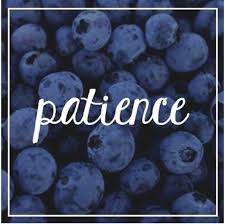Cj – End Notes
End Notes
Galatians from a Jewish Perspective
1. The Bible Knowledge Commentary, by John Walvoord and Roy Zuck, Victor Books, Wheaton, Illinois, 1985, page 587.
2. Galatians, by John MacArthur, Moody Press, Chicago, Illinois, 1987, pages Xi-Xii.
3. New International Version Study Bible, general editor Kenneth Baker, Zondervan, Grand Rapids, Michigan, 2011, pages 1970-1971.
4. Galatians, by John MacArthur, Moody Press, Chicago, Illinois, 1987, pages 46-48.
5. GotQuestions.org
6. Galatians, by John MacArthur, Moody Press, Chicago, Illinois, 1987, page 1.
7. The Holy Epistle of Galatians, by D. Thomas Lancaster, The First Fruits of Zion, Marshfield, Missouri, 2011, pages 11-12.
8. The Acts of the Apostles, by Ben Witherington III, Eerdmans, Grand Rapids, Michigan, 1998, page 123.
9. The Jewish Roots of Acts 16-28, by Joseph Shulam, Netivyah Bible Instruction Ministry, Jerusalem, Isra’el, 2012, page 746.
10. The Holy Epistle of Galatians, by D. Thomas Lancaster, The First Fruits of Zion, Marshfield, Missouri, 2011, pages 16-17.
11. Galatians for the Practical Messianic, by J. K. McKee, Messianic Apologetics, a division of Outreach Israel Ministries, McKinney, Texas, 2004, page 31.
12. The Jewish Roots of Galatians, by Joseph Shulam, Netivyah Bible Instruction Ministry, Jerusalem, 1977, page 21.
13. Galatians, by John MacArthur, Moody Press, Chicago, Illinois, 1987, page 7.
14. Wuest’s Word Studies: Galatians, by Kenneth Wuest, Eerdmans Publishing Company, Grand Rapids, Michigan, 1944, page 30-33.
15. The Jewish Roots of Galatians, by Joseph Shulam, Netivyah Bible Instruction Ministry, Jerusalem, 1977, page 24.
16. Galatians, by John MacArthur, Moody Press, Chicago, Illinois, 1987, page 31.
No Other Gospel
17. Wuest’s Word Studies: Galatians, by Kenneth Wuest, Eerdmans Publishing Company, Grand Rapids, Michigan, 1944, pages 36-37.
18. The Jewish New Testament Commentary, by David Stern, Jewish New Testament Publications, Clarksville, Maryland, 1992, page 521.
19. Galatians for the Practical Messianic, by J. K. McKee, Messianic Apologetics, a division of Outreach Israel Ministries, McKinney, Texas, 2004, page 37.
20. Galatians, by John MacArthur, Moody Press, Chicago, Illinois, 1987, page 16.
21. Strange Fire, by John MacArthur, Thomas Nelson, Nashville, Tennessee, 2013, page 222.
22. Arnold Fruchtenbaum.ga101.mp3
23. Galatians, by John MacArthur, Moody Press, Chicago, Illinois, 1987, page 17.
The Personal Argument: An Independent Revelation
24. The Jewish Roots of Galatians, by Joseph Shulam, Netivyah Bible Instruction Ministry, Jerusalem, 1977, pages 60-61.
25. Ibid, pages 61-62.
26. Galatians for the Practical Messianic, by J. K. McKee, Messianic Apologetics, a division of Outreach Israel Ministries, McKinney, Texas, 2004, pages 41-42.
27. Galatians, by John MacArthur, Moody Press, Chicago, Illinois, 1987, page 25.
28. Wuest’s Word Studies: Galatians, by Kenneth Wuest, Eerdmans Publishing Company, Grand Rapids, Michigan, 1944, page 47.
29. Be Free: NT Commentary on Galatians, by Warren Wiersbe, David Cook Publisher, Colorado Springs, Colorado, 1975, page 33.
30. The Jewish Roots of Galatians, by Joseph Shulam, Netivyah Bible Instruction Ministry, Jerusalem, 1977, pages 46-47.
31. Eusebius, Ecclesiastical History, Hendrickson Publishers, Peabody, Massachusetts, 1998, pages 59-60.
32. The Messiah in the Temple, by Roger Liebi, Christlicher Medien-Vertrieb, Dusseldorf, Germany, 2012, pages 205-206.
33. Eusebius, Ecclesiastical History, Hendrickson Publishers, Peabody, Massachusetts, 1998, page 60 paraphrased.
34. The Jewish Roots of Galatians, by Joseph Shulam, Netivyah Bible Instruction Ministry, Jerusalem, 1977, page 74.
35. Ibid, pages 79-80.
36. Arnold Fruchtenbaum.ga101.mp3
37. Galatians, by John MacArthur, Moody Press, Chicago, Illinois, 1987, page 31.
38. The Jewish New Testament Commentary, by David Stern, Jewish New Testament Publications, Clarksville, Maryland, 1992, page 526.
39. The Jewish Roots of Galatians, by Joseph Shulam, Netivyah Bible Instruction Ministry, Jerusalem, 1977, page 73.
40. Wuest’s Word Studies: Galatians, by Kenneth Wuest, Eerdmans Publishing Company, Grand Rapids, Michigan, 1944, pages 54-55.
41. Be Free: NT Commentary on Galatians, by Warren Wiersbe, David Cook Publisher, Colorado Springs, Colorado, 1975, page 39.
42. The Jewish New Testament Commentary, by David Stern, Jewish New Testament Publications, Clarksville, Maryland, 1992, pages 263.
43. Galatians, by John MacArthur, Moody Press, Chicago, Illinois, 1987, page 37.
44. The Holy Epistle of Galatians, by D. Thomas Lancaster, The First Fruits of Zion, Marshfield, Missouri, 2011, pages 52-57.
45. Ibid, page 64.
46. The Jewish Roots of Galatians, by Joseph Shulam, Netivyah Bible Instruction Ministry, Jerusalem, 1977, pages 91-94.
47. Galatians, by John MacArthur, Moody Press, Chicago, Illinois, 1987, pages 36-37
48. Wuest’s Word Studies: Galatians, by Kenneth Wuest, Eerdmans Publishing Company, Grand Rapids, Michigan, 1944, page 62.
49. Be Free: NT Commentary on Galatians, by Warren Wiersbe, David Cook Publisher, Colorado Springs, Colorado, 1975, page 50.
50. The Holy Epistle of Galatians, by D. Thomas Lancaster, The First Fruits of Zion, Marshfield, Missouri, 2011, pages 69-70.
51. The Jewish New Testament Commentary, by David Stern, Jewish New Testament Publications, Clarksville, Maryland, 1992, page 527.
52. The Jewish Roots of Galatians, by Joseph Shulam, Netivyah Bible Instruction Ministry, Jerusalem, 1977, page 113.
53. Be Free: NT Commentary on Galatians, by Warren Wiersbe, David Cook Publisher, Colorado Springs, Colorado, 1975, page 51.
54. The Jewish Roots of Galatians, by Joseph Shulam, Netivyah Bible Instruction Ministry, Jerusalem, 1977, pages 114-118.
55. Be Dynamic, NT Commentary on Acts 1-12, by Warren Wiersbe, David Cook, Colorado Springs, Colorado,1987, pages 10-13.
56. act11.mp3, Arnold Fruchtenbaum
57. The Jewish Roots of Galatians, by Joseph Shulam, Netivyah Bible Instruction Ministry, Jerusalem, 1977, pages 117-123.
58. Wuest’s Word Studies: Galatians, by Kenneth Wuest, Eerdmans Publishing Company, Grand Rapids, Michigan, 1944, pages 70-71.
59. Ibid, pages 72-73.
60. Galatians, by John MacArthur, Moody Press, Chicago, Illinois, 1987, pages 54-55.
61. Ibid, page 55.
62. Ibid, page 56.
63. Wuest’s Word Studies: Galatians, by Kenneth Wuest, Eerdmans Publishing Company, Grand Rapids, Michigan, 1944, pages 79-80.
64. Arnold Fruchtenbaum.ga102.mp3
The Doctrinal Argument: The Failure of Legalism
65. Galatians, by John MacArthur, Moody Press, Chicago, Illinois, 1987, pages 61-63.
66. Ibid, page 64.
67. The Jewish Roots of Galatians, by Joseph Shulam, Netivyah Bible Instruction Ministry, Jerusalem, 1977, page 145.
68. Arnold Fruchtenbaum.ga103.mp3
69. The Bible Knowledge Commentary, by John Walvoord and Roy Zuck, Victor Books, Wheaton, Illinois, 1985, page 827.
70. Arnold Fruchtenbaum.ga103.mp3
71. Be Free: NT Commentary on Galatians, by Warren Wiersbe, David Cook Publisher, Colorado Springs, Colorado, 1975, page 72.
72. The Holy Epistle of Galatians, by D. Thomas Lancaster, The First Fruits of Zion, Marshfield, Missouri, 2011, pages 131-134.
73. Arnold Fruchtenbaum.ga103.mp3
74. Arnold Fruchtenbaum.ga103.mp3
75. Galatians, by John MacArthur, Moody Press, Chicago, Illinois, 1987, page 76.
76. The Holy Epistle of Galatians, by D. Thomas Lancaster, The First Fruits of Zion, Marshfield, Missouri, 2011, pages 150.
77. Ibid, pages 145-147.
78. Galatians, by John MacArthur, Moody Press, Chicago, Illinois, 1987, page ix.
79. Arnold Fruchtenbaum.ga103.mp3
80. The Holy Epistle of Galatians, by D. Thomas Lancaster, The First Fruits of Zion, Marshfield, Missouri, 2011, page 153-154.
81. The Jewish New Testament Commentary, by David Stern, Jewish New Testament Publications, Clarksville, Maryland, 1992, page 547.
82. Galatians, by John MacArthur, Moody Press, Chicago, Illinois, 1987, page 79.
83. The Holy Epistle of Galatians, by D. Thomas Lancaster, The First Fruits of Zion, Marshfield, Missouri, 2011, pages 155-162.
84. Wuest’s Word Studies: Galatians, by Kenneth Wuest, Eerdmans Publishing Company, Grand Rapids, Michigan, 1944, pages 99-100.
85. Galatians, by John MacArthur, Moody Press, Chicago, Illinois, 1987, page 83.
86. Arnold Fruchtenbaum.ga103.mp3
87. Wuest’s Word Studies: Galatians, by Kenneth Wuest, Eerdmans Publishing Company, Grand Rapids, Michigan, 1944, pages 99-100.
88. Ibid, pages 102-103.
89. Galatians, by John MacArthur, Moody Press, Chicago, Illinois, 1987, page 86.
90. The Bible Knowledge Commentary, by John Walvoord and Roy Zuck, Victor Books, Wheaton, Illinois, 1985, page 599.
91. Galatians, by John MacArthur, Moody Press, Chicago, Illinois, 1987, page 87.
92. Arnold Fruchtenbaum.ga103.mp3
93. Galatians, by John MacArthur, Moody Press, Chicago, Illinois, 1987, pages 88-89.
94. Wuest’s Word Studies: Galatians, by Kenneth Wuest, Eerdmans Publishing Company, Grand Rapids, Michigan, 1944, page 109.
95. The Holy Epistle of Galatians, by D. Thomas Lancaster, The First Fruits of Zion, Marshfield, Missouri, 2011, pages 183-184.
96. The Jewish New Testament Commentary, by David Stern, Jewish New Testament Publications, Clarksville, Maryland, 1992, page 554.
97. Wuest’s Word Studies: Galatians, by Kenneth Wuest, Eerdmans Publishing Company, Grand Rapids, Michigan, 1944, page 112.
98. The Bible Knowledge Commentary, by John Walvoord and Roy Zuck, Victor Books, Wheaton, Illinois, 1985, page 600.
99. The Jewish New Testament Commentary, by David Stern, Jewish New Testament Publications, Clarksville, Maryland, 1992, pages 554-556.
100. Wuest’s Word Studies: Galatians, by Kenneth Wuest, Eerdmans Publishing Company, Grand Rapids, Michigan, 1944, page 112.
101. Galatians, by John MacArthur, Moody Press, Chicago, Illinois, 1987, page 101.
102. Be Free: NT Commentary on Galatians, by Warren Wiersbe, David Cook Publisher, Colorado Springs, Colorado, 1975, page 91.
103. Galatians, by John MacArthur, Moody Press, Chicago, Illinois, 1987, pages 104-105.
104. Ibid, page 107.
105. Ibid, page 108.
106. The Purpose Driven Life, by Rick Warren, Zondervan, Grand Rapids, Michigan, 2002, page119.
107. Galatians, by John MacArthur, Moody Press, Chicago, Illinois, 1987, page 109.
108. Wuest’s Word Studies: Galatians, by Kenneth Wuest, Eerdmans Publishing Company, Grand Rapids, Michigan, 1944, pages 122-123.
109. Galatians, by John MacArthur, Moody Press, Chicago, Illinois, 1987, pages 111-112.
110. Be Free: NT Commentary on Galatians, by Warren Wiersbe, David Cook Publisher, Colorado Springs, Colorado, 1975, page 98.
111. Wuest’s Word Studies: Galatians, by Kenneth Wuest, Eerdmans Publishing Company, Grand Rapids, Michigan, 1944, page 124.
112. First Corinthians, by John MacArthur, Moody Bible Institute, Chicago, Illinois, 1984, page 212.
113. The Bible Knowledge Commentary, by John Walvoord and Roy Zuck, Victor Books, Wheaton, Illinois, 1985, page 524.
114. First Corinthians, by John MacArthur, Moody Bible Institute, Chicago, Illinois, 1984, pages 213.
115. Be Free: NT Commentary on Galatians, by Warren Wiersbe, David Cook Publisher, Colorado Springs, Colorado, 1975, page 99.
116. Wuest’s Word Studies: Galatians, by Kenneth Wuest, Eerdmans Publishing Company, Grand Rapids, Michigan, 1944, page 124.
117. Galatians, by John MacArthur, Moody Press, Chicago, Illinois, 1987, page 119.
118. Ibid, page 220.
119. The Bible Knowledge Commentary, by John Walvoord and Roy Zuck, Victor Books, Wheaton, Illinois, 1985, page 603.
120. The Jewish New Testament Commentary, by David Stern, Jewish New Testament Publications, Clarksville, Maryland, 1992, page 559.
121. The Jewish Roots of Galatians, by Joseph Shulam, Netivyah Bible Instruction Ministry, Jerusalem, 1977, page 313.
122. The Holy Epistle of Galatians, by D. Thomas Lancaster, The First Fruits of Zion, Marshfield, Missouri, 2011, page 224.
123. The Jewish Roots of Galatians, by Joseph Shulam, Netivyah Bible Instruction Ministry, Jerusalem, 1977, pages 315-316.
124. The Holy Epistle of Galatians, by D. Thomas Lancaster, The First Fruits of Zion, Marshfield, Missouri, 2011, pages 225-228.
The Practical Argument: The Effects of Liberty
125. Wuest’s Word Studies: Galatians, by Kenneth Wuest, Eerdmans Publishing Company, Grand Rapids, Michigan, 1944, pages 135-136.
126. The Jewish New Testament Commentary, by David Stern, Jewish New Testament Publications, Clarksville, Maryland, 1992, page 561-560.
127. Arnold Fruchtenbaum.ga105.mp3
128. Wuest’s Word Studies: Galatians, by Kenneth Wuest, Eerdmans Publishing Company, Grand Rapids, Michigan, 1944, page 138.
129. Arnold Fruchtenbaum.ga105.mp3
130. Galatians, by John MacArthur, Moody Press, Chicago, Illinois, 1987, pages 136-137.
131. Be Free: NT Commentary on Galatians, by Warren Wiersbe, David Cook Publisher, Colorado Springs, Colorado, 1975, pages 122-123.
132. Arnold Fruchtenbaum.ga105.mp3
133. Be Free: NT Commentary on Galatians, by Warren Wiersbe, David Cook Publisher, Colorado Springs, Colorado, 1975, page
134. Wuest’s Word Studies: Galatians, by Kenneth Wuest, Eerdmans Publishing Company, Grand Rapids, Michigan, 1944, pages 148-149.
135. Galatians, by John MacArthur, Moody Press, Chicago, Illinois, 1987, pages 146-147.
136. Wuest’s Word Studies: Galatians, by Kenneth Wuest, Eerdmans Publishing Company, Grand Rapids, Michigan, 1944, pages 150-152.
137. Galatians, by John MacArthur, Moody Press, Chicago, Illinois, 1987, page 151.
138. The Jewish Roots of Galatians, by Joseph Shulam, Netivyah Bible Instruction Ministry, Jerusalem, 1977, page 361.
139. Wuest’s Word Studies: Galatians, by Kenneth Wuest, Eerdmans Publishing Company, Grand Rapids, Michigan, 1944, pages 153-155.
140. Galatians, by John MacArthur, Moody Press, Chicago, Illinois, 1987, pages 161-163.
141. First Corinthians, by John MacArthur, Moody Bible Institute, Chicago, Illinois, 1984, pages 331-336.
142. Ibid, pages 337-338.
143. Wuest’s Word Studies: Galatians, by Kenneth Wuest, Eerdmans Publishing Company, Grand Rapids, Michigan, 1944, page 160.
144. Jewish People of the First Century, by Shemuel Safrai, Fortress, Philadelphia, Pennsylvania, 1976, pages 870 and 877.
145. Through Peasant Eyes, by Kenneth Bailey, Eerdmans, Grand Rapids, MI, 1980, pages 43-45.
146. The Parables of Jesus, by Joachim Jeremias, SCM Press, Ltd, NY, NY, 1954, page 203.
147. Notes on the Parables of Our Lord. By R. C. Trench, D. Appleton and Co, New York, NY, 1881, page 314.
148. Through Peasant Eyes, by Kenneth Bailey, Eerdmans, Grand Rapids, MI, 1980, pages 46-47.
149. The NIV Application Commentary: Judges/Ruth, by Lawson Younger, Jr, Zondervan, Grand Rapids, MI, 2002, pages 393-395.
150. Poet and Peasant, by Kenneth Bailey, Eerdmans, Grand Rapids, MI, 1980, pgs 148-150.
151. Ibid, pages 153-154.
152. Galatians, by John MacArthur, Moody Press, Chicago, Illinois, 1987, pages 167-170.
153. The Purpose Driven Life, by Rick Warren, Zondervan, Grand Rapids, Michigan, 2002, page 202.
154. Be Free: NT Commentary on Galatians, by Warren Wiersbe, David Cook Publisher, Colorado Springs, Colorado, 1975, pages 136-137.
155. Galatians, by John MacArthur, Moody Press, Chicago, Illinois, 1987, page 173.
156. The Holy Epistle of Galatians, by D. Thomas Lancaster, The First Fruits of Zion, Marshfield, Missouri, 2011, pages 261-262.
157. Galatians, by John MacArthur, Moody Press, Chicago, Illinois, 1987, page 180.
158. The Jewish Roots of Galatians, by Joseph Shulam, Netivyah Bible Instruction Ministry, Jerusalem, 1977, pages 391-392.
159. The Jewish New Testament Commentary, by David Stern, Jewish New Testament Publications, Clarksville, Maryland, 1992, pages 569-570.
160. Galatians, by John MacArthur, Moody Press, Chicago, Illinois, 1987, page 181-182.
161. Ibid, page 182.
162. Wuest’s Word Studies: Galatians, by Kenneth Wuest, Eerdmans Publishing Company, Grand Rapids, Michigan, 1944, page 170.
163. Ibid, page 172.
164. Galatians, by John MacArthur, Moody Press, Chicago, Illinois, 1987, pages 185-186.
165. First Corinthians, by John MacArthur, Moody Bible Institute, Chicago, Illinois, 1984, pages 125-126.
166. Galatians, by John MacArthur, Moody Press, Chicago, Illinois, 1987, page 188.
167. Wuest’s Word Studies: Galatians, by Kenneth Wuest, Eerdmans Publishing Company, Grand Rapids, Michigan, 1944, pages 172-173.
168. Galatians, by John MacArthur, Moody Press, Chicago, Illinois, 1987, page 189.
169. Ibid, pages 190-192.
170. The Bible Knowledge Commentary, by John Walvoord and Roy Zuck, Victor Books, Wheaton, Illinois, 1985, page 610.
171. Be Free: NT Commentary on Galatians, by Warren Wiersbe, David Cook Publisher, Colorado Springs, Colorado, 1975, page 153.
172. Wuest’s Word Studies: Galatians, by Kenneth Wuest, Eerdmans Publishing Company, Grand Rapids, Michigan, 1944, pages 175-176.
173. Be Free: NT Commentary on Galatians, by Warren Wiersbe, David Cook Publisher, Colorado Springs, Colorado, 1975, page 153.
174. Galatians, by John MacArthur, Moody Press, Chicago, Illinois, 1987, page 194.
175. Ibid, pages 196-197.
176. Ibid, pages 196-197.
177. Wuest’s Word Studies: Galatians, by Kenneth Wuest, Eerdmans Publishing Company, Grand Rapids, Michigan, 1944, page 178.
178. Ibid, page 178.
179. Galatians, by John MacArthur, Moody Press, Chicago, Illinois, 1987, page 200.
180. Wuest’s Word Studies: Galatians, by Kenneth Wuest, Eerdmans Publishing Company, Grand Rapids, Michigan, 1944, page 178.
181. The Bible Knowledge Commentary, by John Walvoord and Roy Zuck, Victor Books, Wheaton, Illinois, 1985, page 568.
182. Wuest’s Word Studies: Galatians, by Kenneth Wuest, Eerdmans Publishing Company, Grand Rapids, Michigan, 1944, page 179.
183. Arnold Fruchtenbaum.ga106.mp3
184. Wuest’s Word Studies: Galatians, by Kenneth Wuest, Eerdmans Publishing Company, Grand Rapids, Michigan, 1944, page 180.
185. Galatians, by John MacArthur, Moody Press, Chicago, Illinois, 1987, pages 211-212.















